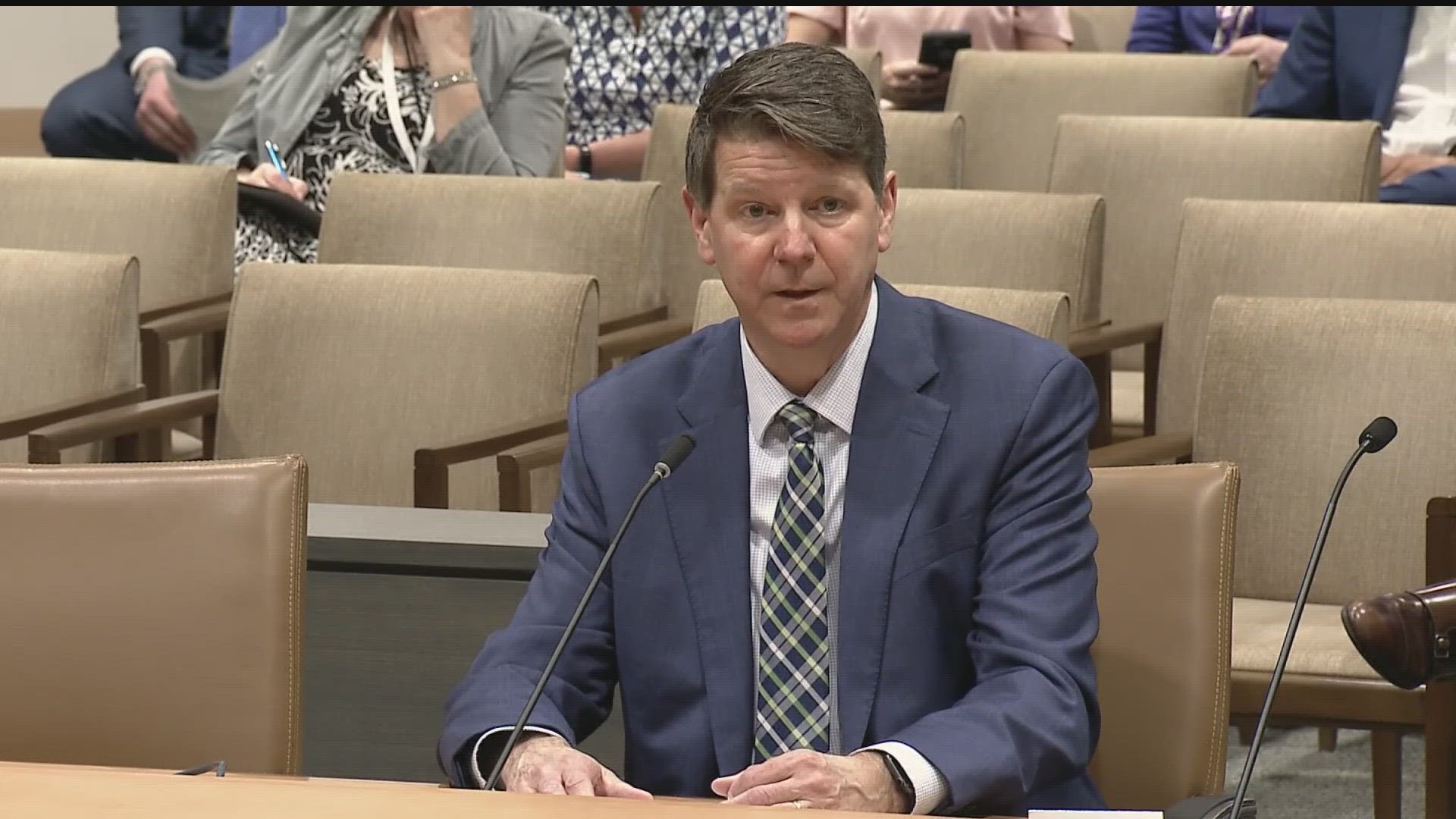ST PAUL, Minn. — Xcel Energy workers did everything by the book when they discovered a leak of radioactive water at the Monticello Nuclear Power Plant last November, but the experience has taught the company a few things about keeping local communities in the loop.
That was the word from Xcel President Chris Clark Wednesday when he appeared before a Minnesota Senate panel.
"A real lesson learned for us was even though this was something contained to our site and didn’t present a public health risk, people wanted us to be sharing more information sooner," Clark told lawmakers.
"We have great support from central Minnesota. We don’t want to take that for granted. We want to be a good neighbor. So, I think we’ve definitely learned lessons there about working with the communities that have been so supportive of us, to have a better process to share information."
The hearing was a joint meeting of the Senate's energy and environment committees, held for the purpose of briefing lawmakers on the leak of water infused with radioactive tritium and the company's response to it.
Clark said Xcel discovered higher levels of tritium in ground water test wells on the site in late November and immediately notified the Nuclear Regulatory Commission and the Minnesota Pollution Control Agency. He said the NRC posted the notification on its website, but in hindsight he conceded most local residents and city leaders don't regularly check that website.
It wasn't until March 16 when the leak was announced to the general public, a decision that drew criticism from some residents of Monticello and others.
Kirk Koudelka, an assistant commissioner at the MPCA, told the committee it's always a balancing act when it comes to deciding how much to share about a situation that doesn't pose an immediate public health threat. In this case, regulators and Xcel were still trying to figure out what was happening to the water under the plant.
"Presenting too little information with very little details ends up creating the potential for fear when we're not able to answer all the questions, and then anxiety," Koudelka explained.
He said it took time to determine the source of the tritium leak and the volume that made its way into the ground water below the power plant, which is situated along the Mississippi River 35 miles northwest of Minneapolis.
So far, the plume, or underground footprint of the radioactive water, is still limited to the area beneath the power plant. It has migrated about 150 feet to the north but hasn't been found in any testing wells directly adjacent to the river.
Koudelka said that site's gradient, or the pathway for the water to flow underground, moves toward the river. So, it's not expected to move towards the nearest private water wells about one mile away. The tritium won't be able to reach the nearest municipal wells that serving the city of Monticello three miles away.
In fact, workers at the Monticello plant are still drinking water from a well in a different part of the complex. That well has normal "background" levels of tritium, which is a naturally substance.
The most current information on the health implications presented by the tritium leak has been assembled on this page at the Minnesota Department of Health website.
Dan Huff, an assistant commissioner for MDH, said even if the tritium-laced water were to reach the Mississippi River, it would be so diluted it wouldn't pose a threat to wildlife or the municipal water supplies for St. Paul and Minneapolis.
Huff said tritium, as a low energy beta particle, can't penetrate a person's skin. The risk of cancer would come by drinking a sizeable amount of tritium-laced water. He noted the EPA considers a tritium concentration higher than 20,000 picocuries as unsafe for drinking water.
"You would be exposed to 4 millirems of radiation. For context, a chest ex-ray is about 10 millirems."
Lawmakers also asked if the fish kill that occurred last month when the plant went off line for repairs had anything to do with tritium exposure. Officials from the MPCA and the DNR pointed out that the tritium hasn't reached the river yet.
They said fish kills are a common occurrence when plants stop operating, especially in winter months, because of the sudden water temperature change near the plant.
"It comes down to warmer water is coming out of power plants, which is a common thing everywhere, not just with nuclear plants," Dan Parsons, the DNR's head of fisheries, told senator.
"So, if that warm water stops, fish receive a thermal shock."

